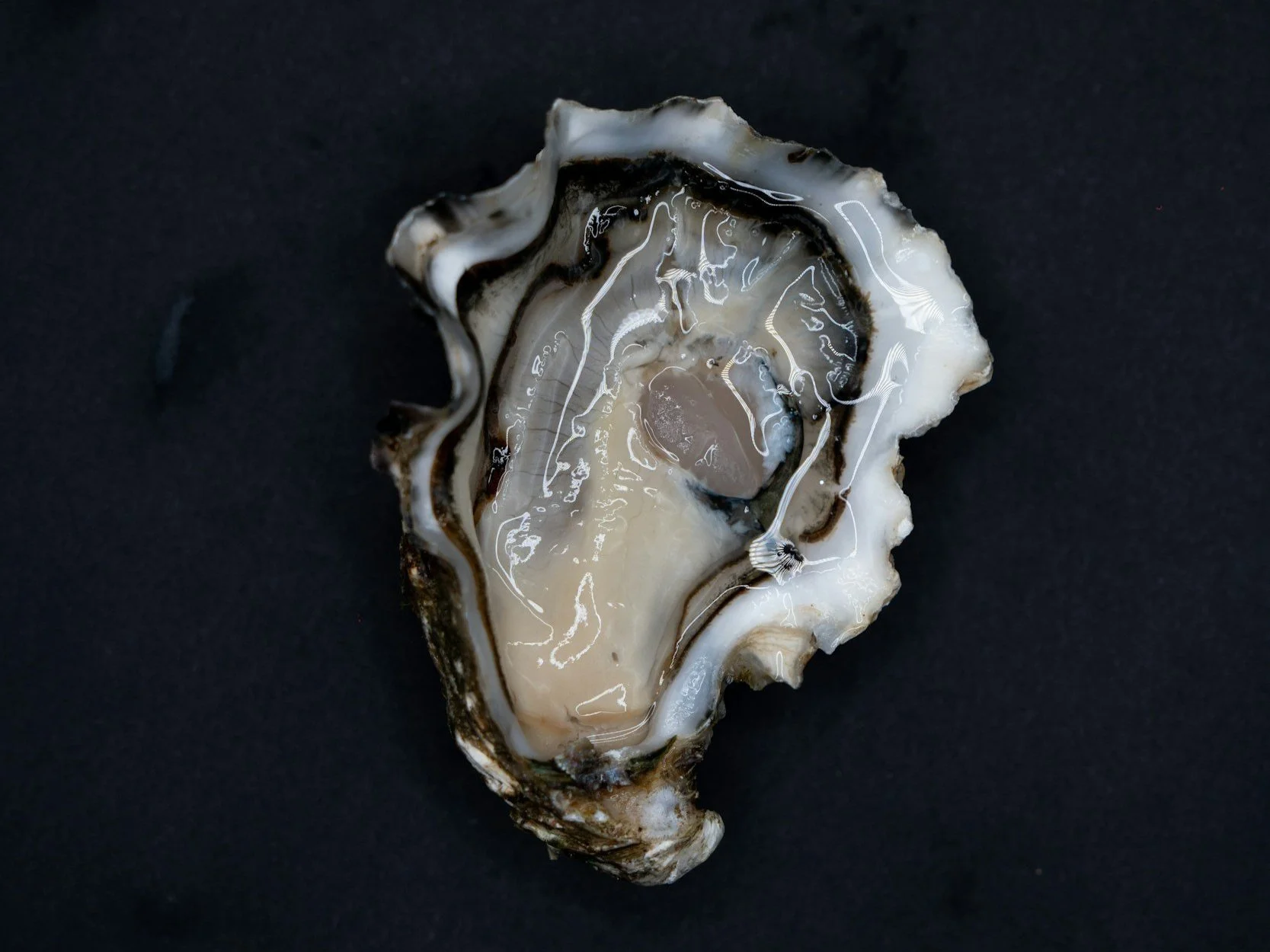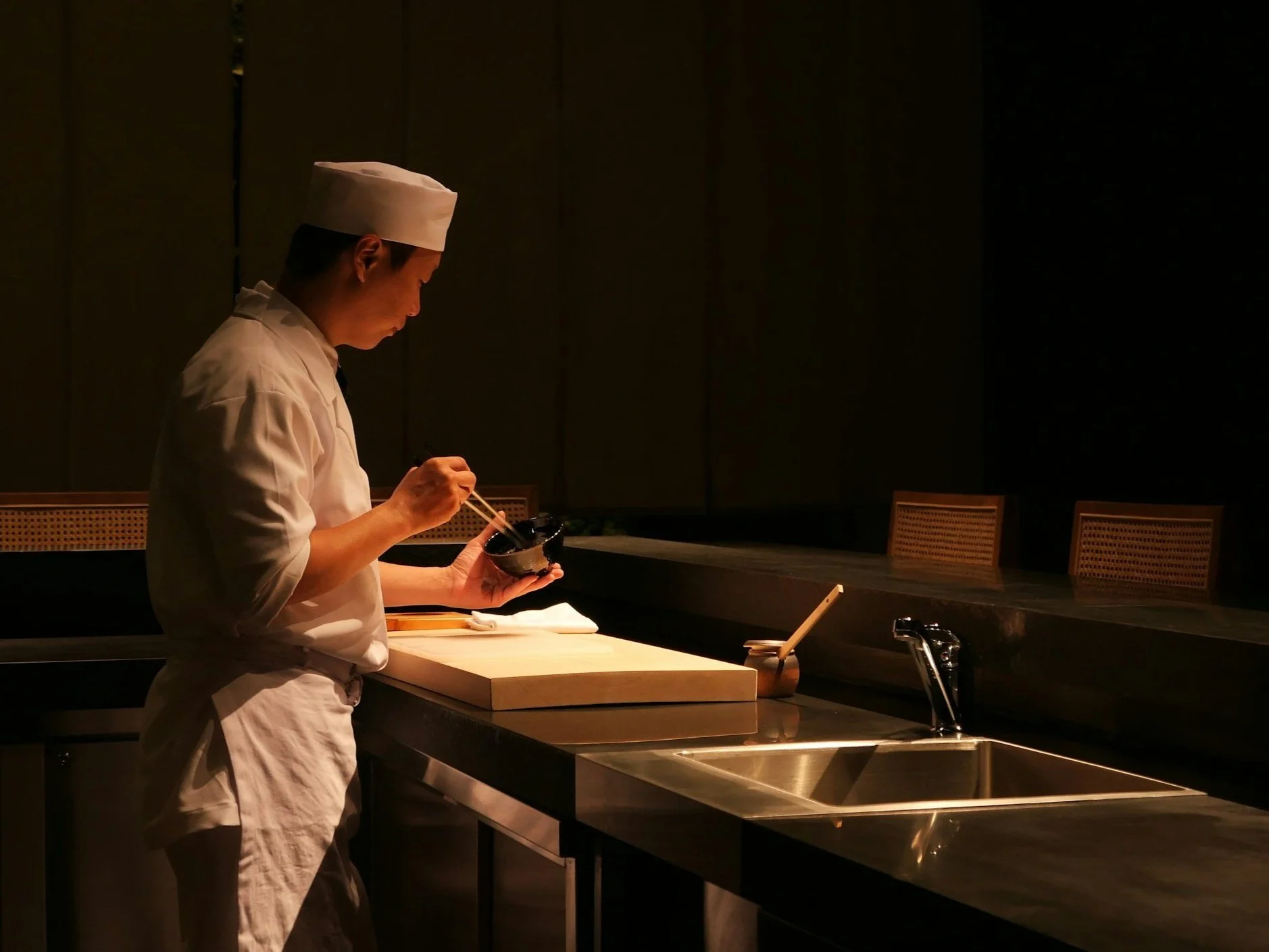Dating chefs.
What’s not to find attractive?
They’re passionate about their work. They’re good with their hands. Maybe there’s something about the chef whites. The ability to multitask. They can feed you and thus satisfy a basic human need. And if they can fulfil that, then surely they can help out with other needs too.
The Michelin Guide - A Chef’s Analysis.
A chef’s relationship with the Michelin guide is a complicated one. If my restaurant isn’t in the guide, I will nonchalantly explain that their standards are generally outdated and their entirely opinion overrated. But if it is in the guide, it will be the first thing I mention: “I work at this restaurant – you don’t know it? It’s in the Michelin guide”.
Eating as a chef.
A chef gets paid to cook – that much is obvious. But to cook good food, we need to use our sense of taste and our (supposedly) refined palates. So not only do we get paid to cook, but we get paid to eat. Cheffing without eating isn’t an option.
Cheffing - an identity crisis.
Being a chef is a job. A way to earn a living. Yet few chefs would consider their profession as just that. Most chefs will tell you that cheffing is a way of life – an extension, if not the base of their personality. Cheffing is an identity. And we internalise this identity to such an extent that it can be hard to separate ourselves from our jobs.
Chloe René: “Finding your food persona can be one of the hardest things to figure out.”
I recently had the pleasure to chat to Chloe René, a London-based recipe developer at Mob. In this interview, Chloe talks about her journey of becoming a recipe developer, where she gets her inspiration and food identity from, and the challenges in the industry of recipe development.
Why I Still Chef.
You owe your efforts to the restaurant, to the team, and to yourself. As Anthony Bourdain said, the restaurant kitchen may well be the last true meritocracy, ‘where what we do is all that matters’. You gain, keep, and deserve your place only if you do the work and prove your worth.
Open Kitchen Nightmares.
Speaking from a diner's perspective, I so get it. Sitting at the kitchen counter and watching the professionals do what they do best - what’s not to love? But flip the table, and I find myself on a busy Friday night, slammed with checks as dozens of curious customers stare me down and - worst comes to worst – try to strike up a conversation with me.
There's a reason I chose to work in the kitchen; to cook – not to perform.
Adriana Cavita: “Always be open to learn and improve, no matter who you are.”
I recently had the pleasure to interview Adriana Cavita, chef and founder of Cavita in London. We talk about her various experiences as a chef, including her passion for Mexican cooking, working in top restaurants like El Bulli, and the opportunity and challenges of opening her own restaurant in London.
“The Bear” Effect: Separating Chef Fact from Fiction.
Over the last few decades, the status of chefs has seen various boosts thanks to the rise of celebrity chefs, books, and other media related to chefs and restaurant cooking.
The chef, previously hidden away in the kitchen, was shoved into the limelight.
Bite by Bite: From Picky Eater to Passionate Chef.
Previously, each unfamiliar dish was a foreign matter comprised of a collection of unidentifiable and potentially nasty ingredients whose sole purpose was to surprise and disgust me.
By cooking something myself, I could deconstruct the unknown and conquer my fears; I could simply take a few ingredients I liked, combine them, and safely enjoy the final product.
It was empowering.
Professionalism vs Motherhood: The Double Standard for Female Chefs.
In these narratives, it appears that men cook great, unapologetic to share their vision. The purpose of women in kitchens appears to be to imitate generations of mothers cooking for their families and to provide comfort and care for the customers and the team around them. It appears that male chefs are professionals and female chefs are mothers.
Or to put it even more simply: Male chefs cook. Female chefs feed.
Issy Cox: “If you can be a chef, you can pretty much do anything.”
I recently had the pleasure to interview the great Issy Cox, a Bristol-based chef and former head chef of Sonny Stores. We discuss her journey of becoming a chef, her experiences as head chef, the challenges of working in the industry, and her next steps following her successful time in restaurant kitchens.
Learning a new cuisine.
Familiarising yourself with a new cuisine is like learning a new language. After spending weeks, months, and years cooking dishes of one cuisine, you become more fluent and confident in creating dishes without needing to rely on formal recipes, knowing that with certain ingredients and techniques, you can create a dish that is unquestionably a dish of your chosen cuisine.
Cooking as a chef.
Becoming a chef changes how you cook.
Or let me put it a different way: there are moments when I feel that becoming a chef has made me a worse cook.
The purpose of chefs.
So what really is the point of chefs? Who needs someone with an unnecessarily large collection of sharp knives to prepare a dish that may be verging on being overpriced and thus making it less accessible to society? What is the point of a person who supposedly knows exactly how to make certain dishes and berates you when you do it differently?
Reasons not to be a chef.
I understand why you wouldn’t want to be a chef.
These days, when there are more opportunities to work from home or to work as a freelancer in your own time, being tied to a place of work for fifty or more hours a week may feel outdated.
And I get it. Sometimes I, and I’m sure most other chefs, do find it hard too.
Chef impostor syndrome.
As soon as you start working in a kitchen yourself, you realise that everyone around you is still learning as much as you are. That is not to undermine the abilities and skills of chefs, but it is merely to say that nobody ever feels complete in their knowledge.
And that’s a good thing.
Meat in the industry.
For many “high-quality” restaurants, veganism is not a label they want to identify with. There seems to be an understanding that good food and vegan food are mutually exclusive.
However, it is necessary that the restaurant industry, especially the higher-end institutions with their more traditional restaurant goers will embrace more plant-forward menus without feeling like they are taking a step back in their culinary quality.
The London restaurant industry.
When I came to London, I was hit by the sheer size of the restaurant industry.
Each borough, neighbourhood, quarter, or even street has its own ecosystem of restaurants in the same way entire cities do elsewhere.
A new generation of chefs.
I was just as susceptible to these romanticised stories of hardship, inhumane work environments, and the pride, glory, and satisfaction these chefs seemed to gain from their work.
But this genre of cheffing is fundamentally problematic and toxic, and all the romanticisation aside, there is no glory in it. Certainly not today.




















